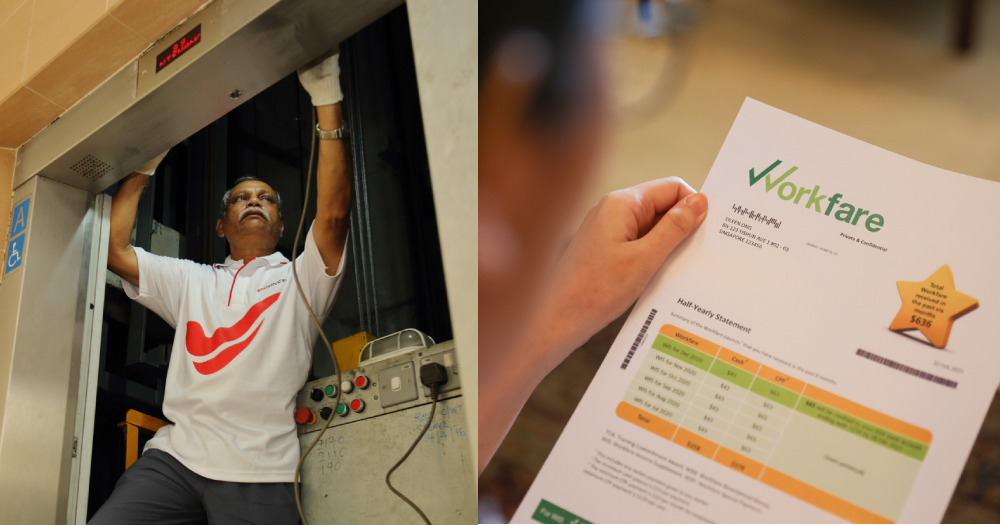Follow us on Telegram for the latest updates: https://t.me/mothershipsg
Besides expanding Progressive Wages (PW) to more sectors, companies who are paying their workers fair wages will be accredited with a Progressive Wage Mark (PW Mark) so consumers can make more informed purchasing decisions.
Prime Minister Lee Hsien Loong announced in his National Day Rally speech on August 29 that the government accepts the recommendations of the Tripartite Workgroup chaired by Senior Minister of State for Manpower and Defence, Zaqy Mohamed.
These recommendations include the introduction of the PW Mark and the requirement for all companies with foreign workers to pay all local employees a Local Qualifying Salary (LQS).
PW Mark
As part of their strategies to uplift lower wage workers, PM Lee confirmed that the Progressive Wage Model (PWM) will cover more sectors, starting with retail next year, and subsequently food services and waste management.
The PWM presently covers cleaners, security guards, landscaping, and lift maintenance workers.
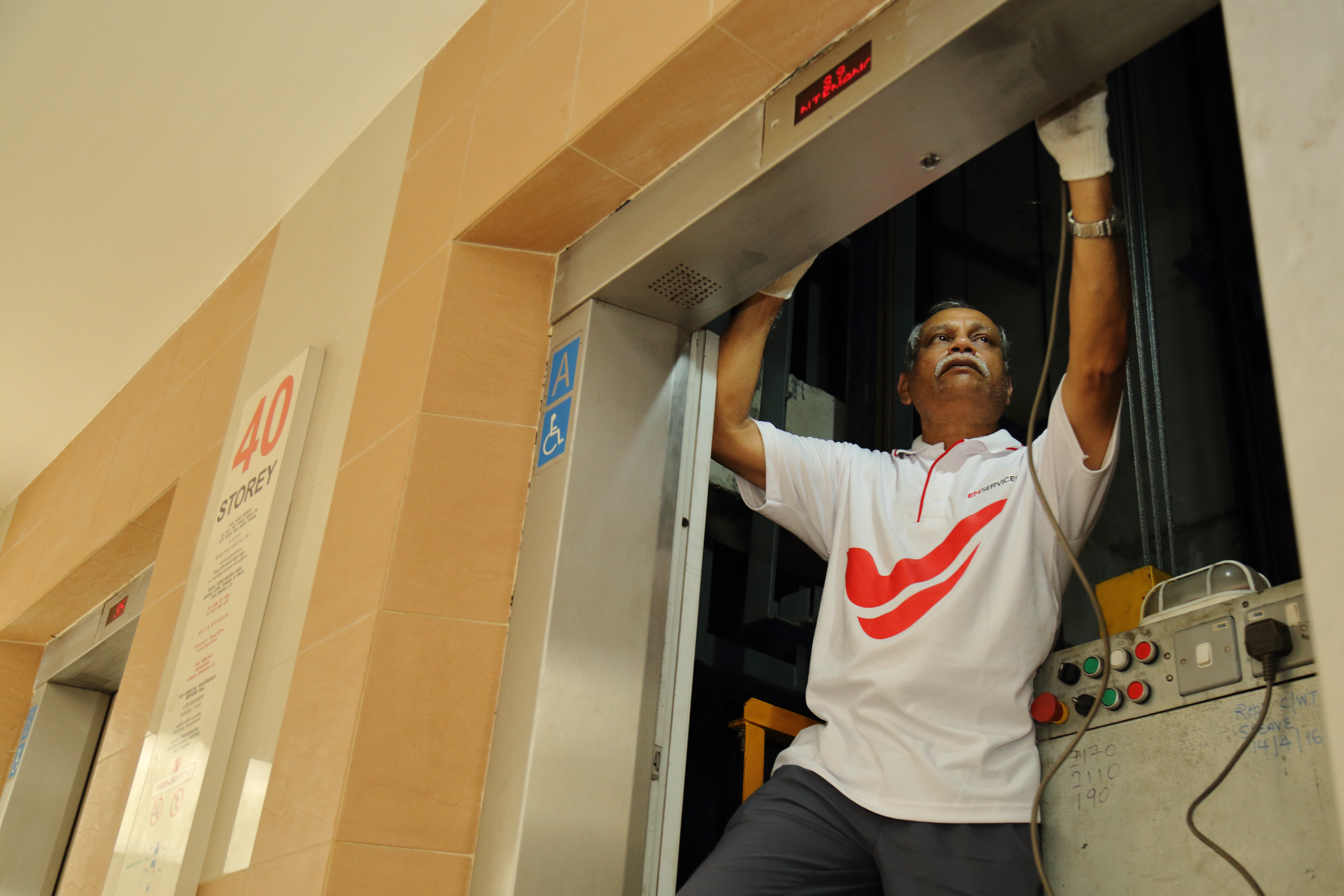 Photo courtesy of MCI.
Photo courtesy of MCI.
Specific occupations across all sectors simultaneously, beginning with administrative assistants and drivers, will also be covered, he said.
The PW Mark will also be launched to accredit companies that are paying their workers Progressive Wages.
Students from Nanyang Polytechnic will help design the logo for PW Mark and the logo will allow consumers to identify companies that are paying their employees fair wages.
As a major buyer of goods and services, the public sector will take the lead and only purchase from such businesses, PM Lee said.
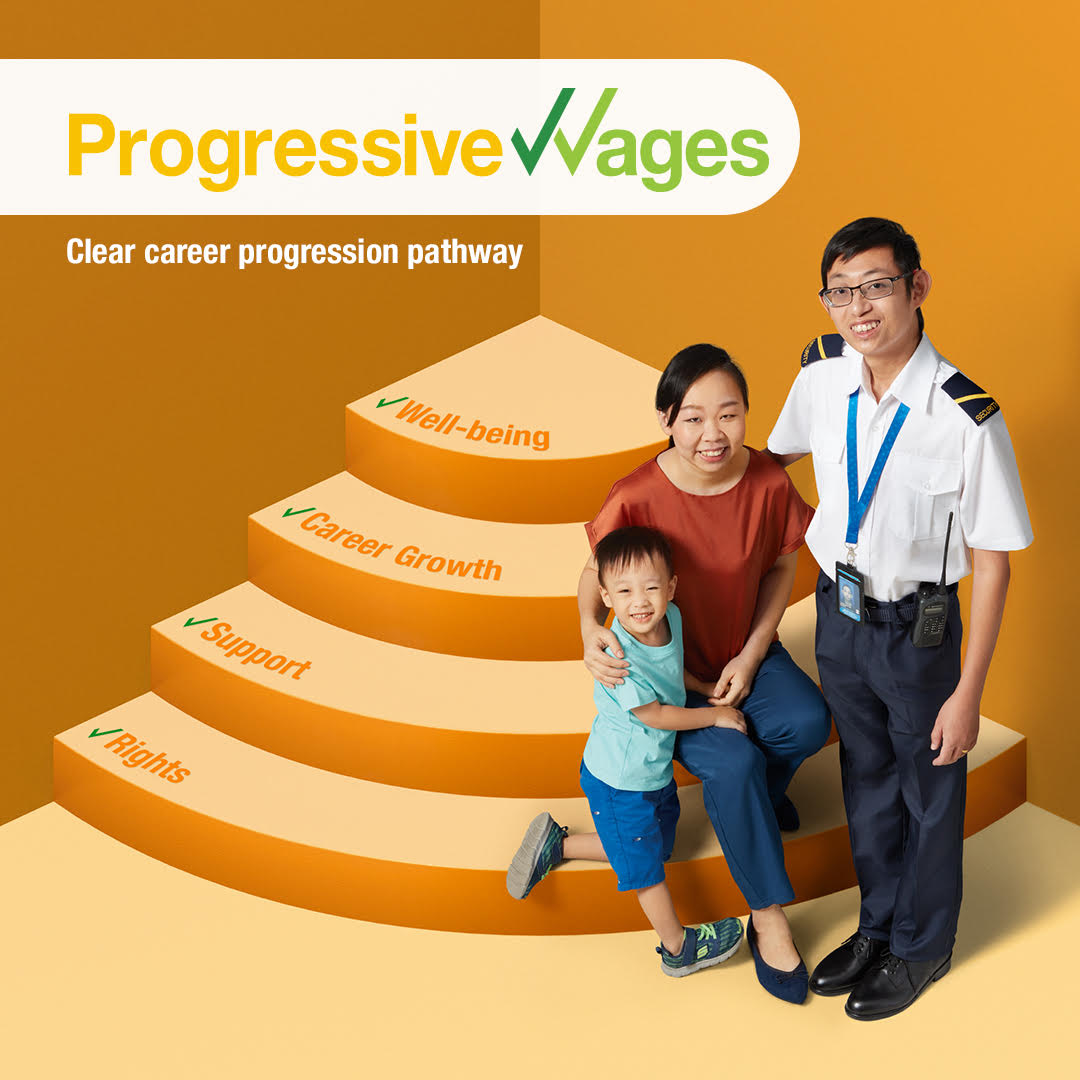 Photo courtesy of MCI.
Photo courtesy of MCI.
Local Qualifying Salary to all local employees if the company hires foreign workers
Presently, companies are already paying the Local Qualifying Salary (LQS) of at least S$1,400 to some of their local employees, depending on how many foreign workers they hire.
PM Lee announced that all companies hiring foreigner workers will be required to pay all their local employees a LQS.
This LQS will also be adjusted from time to time, he added.
According to PM Lee, the extended Progressive Wages and tighter LQS will cover eight in 10 lower wage workers.
Almost all lower wage workers can look forward to higher incomes within the next two years with the inclusion of Workfare Income Supplement scheme, he said.
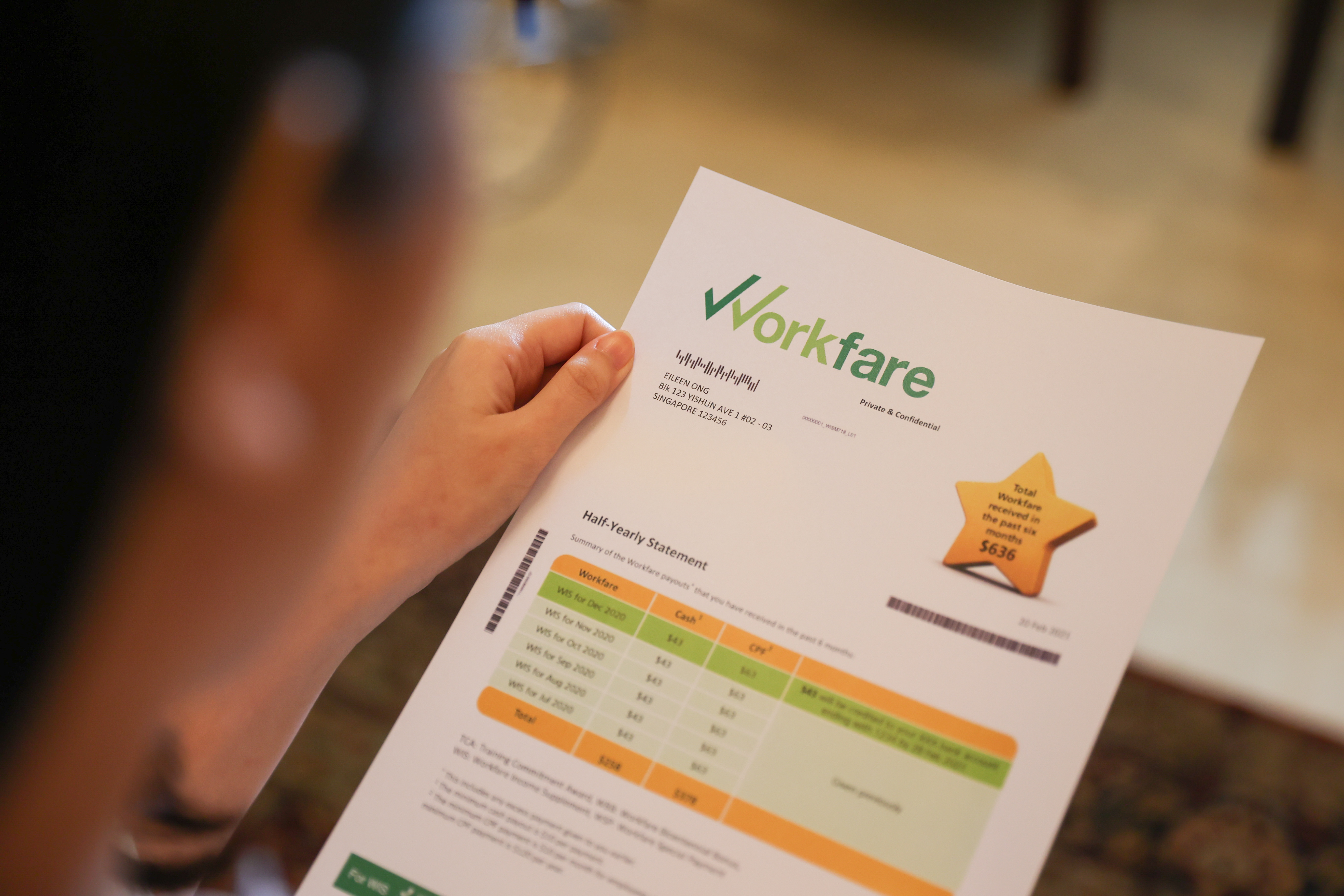 Photo courtesy of MCI.
Photo courtesy of MCI.
Lower qualifying age for Workfare scheme
PM Lee shared that it costs the government S$850 million a year to top up the salaries of almost half a million lower wage workers in cash and CPF contributions via the Workfare Income Supplement (Workfare) Scheme.
He announced that they will increase this amount to S$1.1 billion in two years' time to raise payouts for all Workfare recipients.
The minimum age for one to qualify for the Workfare scheme will be lowered to 30, instead of 35, to help younger lower wage workers.
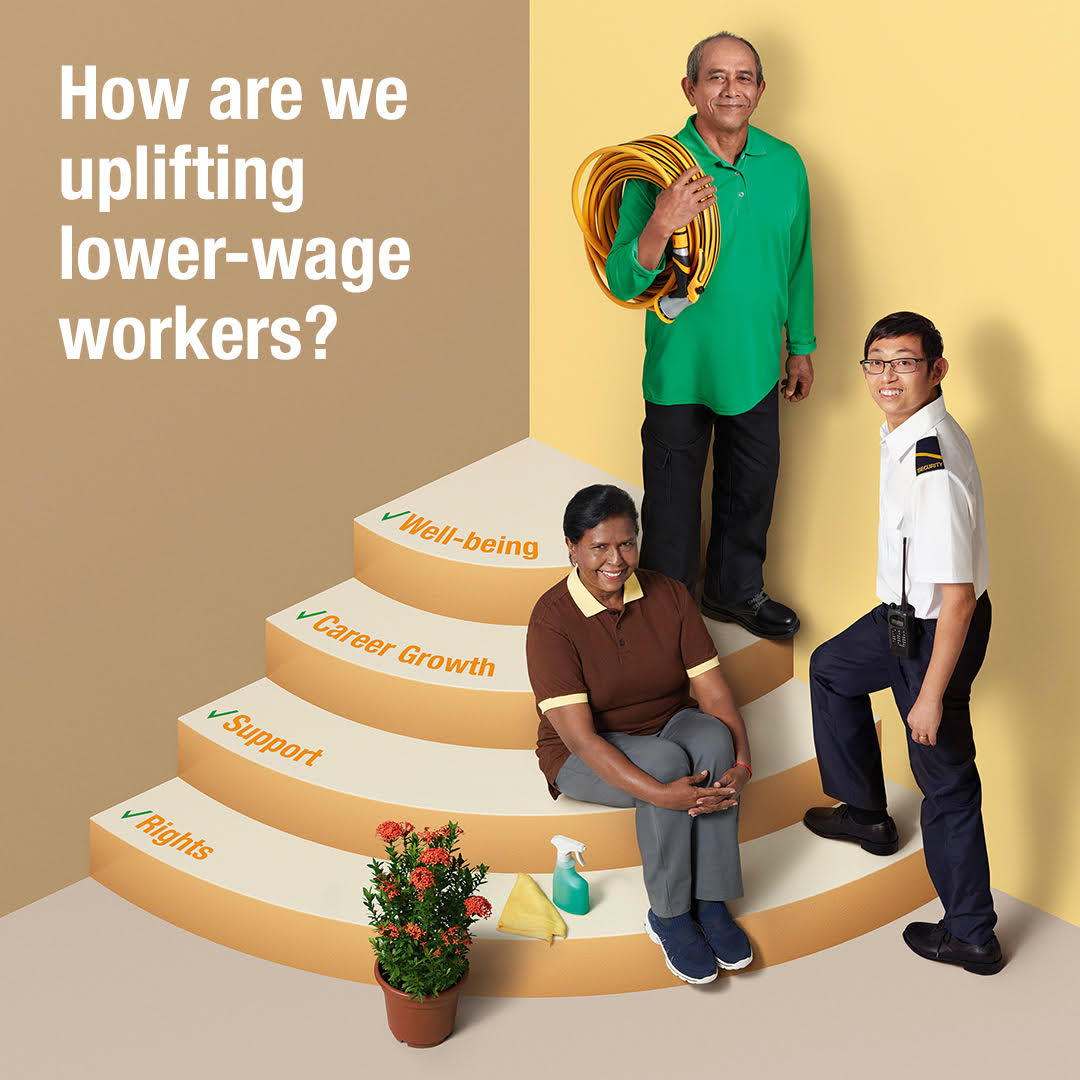 Photo courtesy of MCI.
Photo courtesy of MCI.
Delivery workers
PM Lee expressed particular concern to a specific group of lower wage workers — the delivery workers on online platforms like foodpanda, Grab, and Deliveroo.
He likened their purposes to employees yet they do not have employment contracts with online platforms.
As a result, they lack basic welfare such as workplace injury compensation, union representation and employer CPF that most employees have, he said.
PM Lee also noted that besides delivery riders, there are also some lower wage workers in other jobs who have "an employee-like relationship" with platforms. They too struggle to afford housing, healthcare, and retirement.
As more people take up such type of work, the Ministry of Manpower (MOM) is studying this growing problem and will be doing consultations to address issues and give these workers more secure futures, he added.
Recent discussion on Progressive Wage Model (PWM)
The PWM was developed by tripartite committees consisting of unions, employers and the government in order to help uplift low wage workers in the cleaning, security and landscape sectors.
It first took effect from September 1, 2014, in the cleaning sector and continues to be an important topic of discussion in Singapore.
Earlier this year on January 26, MOM announced that the PMW will be expanded to include the waste management sector, which will benefit up to 3,000 more local workers, in addition to the pre-existing coverage of the cleaning, security, landscape, and lift and escalator sectors.
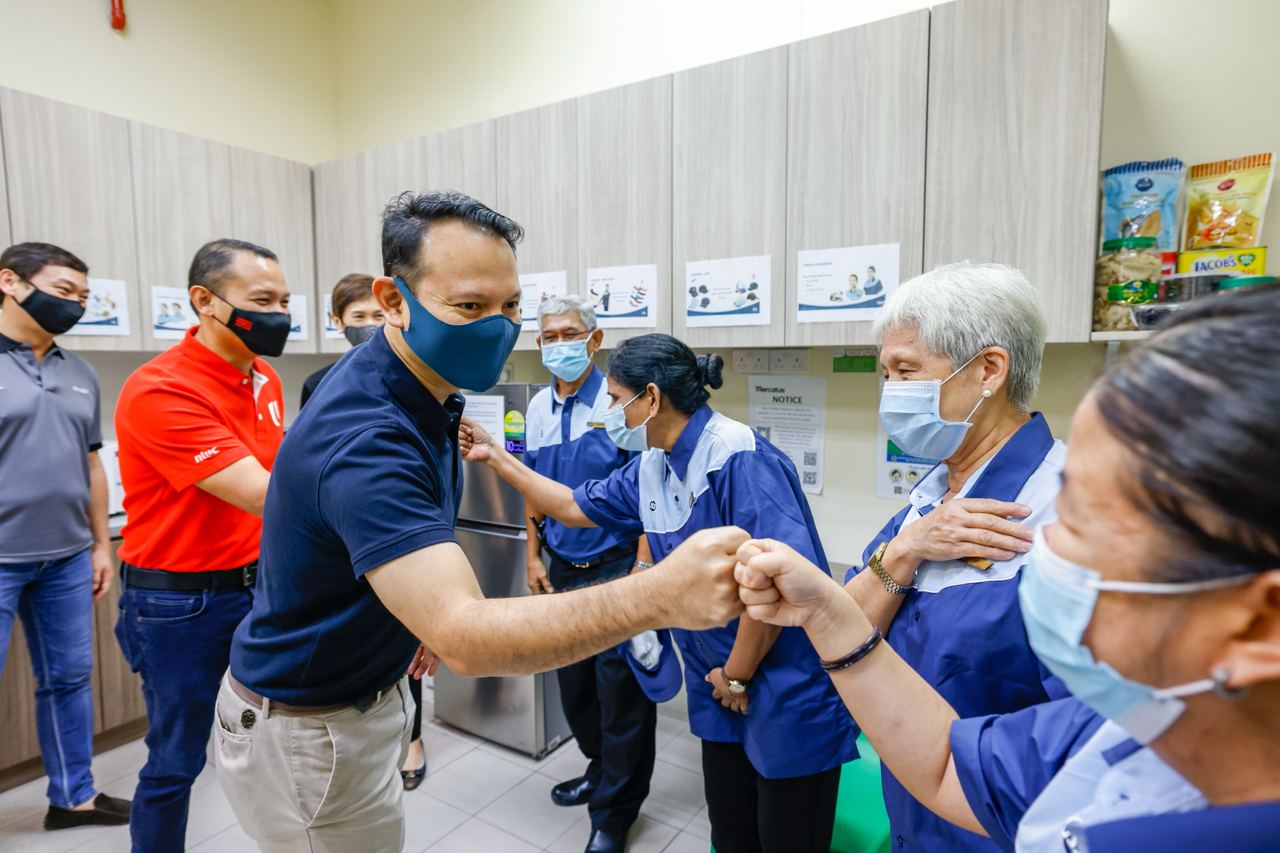 Senior Minister of State for Manpower Zaqy Mohamad (wearing a navy blue shirt) and Member of Parliament Fahmi Aliman (wearing red shirt) meeting lower wage workers. Photo courtesy of MCI.
Senior Minister of State for Manpower Zaqy Mohamad (wearing a navy blue shirt) and Member of Parliament Fahmi Aliman (wearing red shirt) meeting lower wage workers. Photo courtesy of MCI.
During the Budget 2021 Debate on February 24, Member of Parliament Fahmi Aliman said that wages in sectors covered by the PWM need to be "commensurate with the skills and the essential services provided" by the workers.
He called for "all the stakeholders" to look at the value of the essential workers' jobs, saying that the PWM wages should consequently be increased.
He acknowledged that increasing wages of essential workers may mean that consumers need to pay more for their services but it would be an important step towards a "fairer and more enlightened society, where we ensure that all workers can live with dignity".
He called on the government to provide some kind of support to help ease the initial transition for those who would need to pay more for such workers' services, if workers' wages were increased.
Previously on March 3, Senior Minister of State for Manpower Zaqy Mohamad said in a COS debate that the Tripartite Workgroup has agreed to extend the PWM to the food services and retail sectors. These sectors are among those with the largest numbers of lower-wage workers. He estimated that these PWMs could cover up to 80,000 local workers.
During the May Day Speech on May 1, PM Lee reiterated National Trades Union Congress (NTUC) secretary-general Ng Chee Meng’s earlier announcement about how low-income workers will be supported through the S$250 million NTUC Foundation that will help sustain NTUC Care initiatives.
He added that the government's collaboration with tripartite partners to extend the PWM to more sectors like food services and retail is a practical, effective strategy to improve the lives of lower wage workers.
PM Lee also said the government planned to double the number of workers covered under the PWM in the next few years and other plans to support lower-income workers that would be elaborate at the National Day Rally.
In his National Day message earlier this month, PM Lee brought up the need for further support for lower wage workers, who have "felt the impact of Covid-19 most acutely" due to having less savings and buffer.
He said that in the longer-term, lower wage workers will need more sustained support, as Singapore sees an increasingly skills-based economy.
Thus, a tripartite workgroup has been developing proposals to improve the lives and prospects of lower wage workers, PM Lee announced.
Top images courtesy of MCI.
Follow and listen to our podcast here
If you like what you read, follow us on Facebook, Instagram, Twitter and Telegram to get the latest updates.
